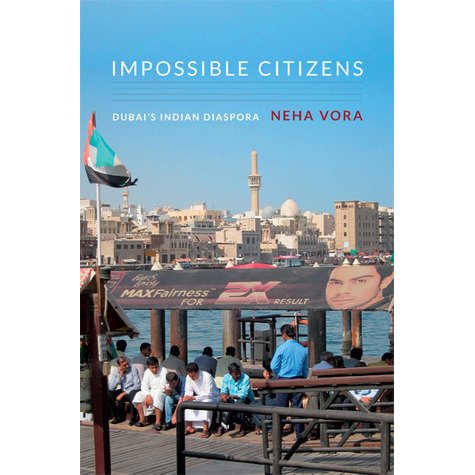-
 Add to cartQuick view
Add to cartQuick viewOn the Question of an Authentic and Original Turkish Literature: Leyla Erbil
Free!This dossier presents three translated essays, by Leyla Erbil (1931–2013), Şavkar Altınel (1953–), and Ataol Behramoğlu (1942–), that inquire into the question of authenticity as related to tradition, individuality, and artistic creativity. The authors try to define what these concepts mean in the Turkish literary field. Prof. Sibel Erol’s essay serves as both an editorial introduction to these translations and an investigation in its own right into the question of whether there is a real Turkish literature. She engages with the heart of the debate through an analysis of the Turkish writer Erbil’s essay titled “On the Question of an Authentic and Original Turkish Literature.” Altınel’s “Yahya Kemal, T. S. Eliot, and the Force of ‘Tradition'” and Behramoğlu’s “Organic Poetry,” while not written directly in response to Erbil’s essay or the question she raises, are in conversation with each other, enriching the debate on literary tradition in general and the state of Turkish literature in particular.
Add to cartQuick view -
 Add to cartQuick view
Add to cartQuick viewDoes Turkish Literature Exist? An Attempt to Answer through the Works of Leyla Erbil, Şavkar Altınel, and Ataol Behramoğlu
Free!This dossier presents three translated essays, by Leyla Erbil (1931–2013), Şavkar Altınel (1953–), and Ataol Behramoğlu (1942–), that inquire into the question of authenticity as related to tradition, individuality, and artistic creativity. The authors try to define what these concepts mean in the Turkish literary field. Prof. Sibel Erol’s essay serves as both an editorial introduction to these translations and an investigation in its own right into the question of whether there is a real Turkish literature. She engages with the heart of the debate through an analysis of the Turkish writer Erbil’s essay titled “On the Question of an Authentic and Original Turkish Literature.” Altınel’s “Yahya Kemal, T. S. Eliot, and the Force of ‘Tradition'” and Behramoğlu’s “Organic Poetry,” while not written directly in response to Erbil’s essay or the question she raises, are in conversation with each other, enriching the debate on literary tradition in general and the state of Turkish literature in particular.
Add to cartQuick view -
Add to cartQuick view
Yahya Kemal, T. S. Eliot, and the Force of “Tradition”: Şavkar Altınel
Free!This dossier presents three translated essays, by Leyla Erbil (1931–2013), Şavkar Altınel (1953–), and Ataol Behramoğlu (1942–), that inquire into the question of authenticity as related to tradition, individuality, and artistic creativity. The authors try to define what these concepts mean in the Turkish literary field. Prof. Sibel Erol’s essay serves as both an editorial introduction to these translations and an investigation in its own right into the question of whether there is a real Turkish literature. She engages with the heart of the debate through an analysis of the Turkish writer Erbil’s essay titled “On the Question of an Authentic and Original Turkish Literature.” Altınel’s “Yahya Kemal, T. S. Eliot, and the Force of ‘Tradition'” and Behramoğlu’s “Organic Poetry,” while not written directly in response to Erbil’s essay or the question she raises, are in conversation with each other, enriching the debate on literary tradition in general and the state of Turkish literature in particular.
Add to cartQuick view -
Add to cartQuick view
Organic Poetry: Ataol Behramoğlu
Free!This dossier presents three translated essays, by Leyla Erbil (1931–2013), Şavkar Altınel (1953–), and Ataol Behramoğlu (1942–), that inquire into the question of authenticity as related to tradition, individuality, and artistic creativity. The authors try to define what these concepts mean in the Turkish literary field. Prof. Sibel Erol’s essay serves as both an editorial introduction to these translations and an investigation in its own right into the question of whether there is a real Turkish literature. She engages with the heart of the debate through an analysis of the Turkish writer Erbil’s essay titled “On the Question of an Authentic and Original Turkish Literature.” Altınel’s “Yahya Kemal, T. S. Eliot, and the Force of ‘Tradition'” and Behramoğlu’s “Organic Poetry,” while not written directly in response to Erbil’s essay or the question she raises, are in conversation with each other, enriching the debate on literary tradition in general and the state of Turkish literature in particular.
Add to cartQuick view -
Add to cartQuick view
Marvine Howe. Al-Andalus Rediscovered: Iberia’s New Muslims. London: Hurst, 2012. 289 pp.
Marvine Howe. Al-Andalus Rediscovered: Iberia’s New Muslims. London: Hurst, 2012. 289 pp.
$5.00Free!Add to cartQuick view -
Add to cartQuick view
Sean Roberts. Printing a Mediterranean World: Florence, Constantinople, and the Renaissance of Geography I Tatti Studies in Italian Renaissance History. Cambridge, MA: Harvard University Press, 2013. 293 pp.
Sean Roberts. Printing a Mediterranean World: Florence, Constantinople, and the Renaissance of Geography I Tatti Studies in Italian Renaissance History. Cambridge, MA: Harvard University Press, 2013. 293 pp.
$5.00Free!Add to cartQuick view -
Add to cartQuick view
Neha Vora. Impossible Citizens: Dubai’s Indian Diaspora Durham: Duke University Press, 2013. 264 pp.
Neha Vora. Impossible Citizens: Dubai’s Indian Diaspora
Durham: Duke University Press, 2013. 264 pp.$5.00Free!Add to cartQuick view -
Add to cartQuick view
Islamic Legal Hybridity and Patriarchal Liberalism in the Shari’a Courts in Israel
The civil judicial family law system and the shari‘a courts in Israel are a fascinating site for the study of legal hybridity, particularly with regard to cases involving the legal and religious rights of women. Legal hybridity is found both in the shari‘a courts, even when ruling on cases that are under their exclusive jurisdiction, and in the family courts that apply provisions of Islamic and Israeli law. In this article, I examine as a case study of the problem of appointing a woman as arbitrator between quarelling spouses in the shari‘a court arbitration process. This example shows how a shari‘a court operates under pressure from the secular civil judicial system. It is discernible how a system of legal hybridity gives rise to multiple discourses deriving from different normative systems and various players—such as human rights organizations, Islamic feminist movements, secular feminist movements, and the Israel Supreme Court—seeking to navigate the discourse in pursuit of their interests. My central thesis is that this system of legal hybridity is enhancing a patriarchal liberalism that is filled with obstacles and hurdles preventing full equality.
$5.00Free!Add to cartQuick view -
Add to cartQuick view
The Iraqi Novel and the Christians of Iraq
Free!After the toppling of Saddam Hussein’s authoritarian regime in 2003, the Christian communities of Iraq faced forced emigration. In this article I examine how the Christians of Iraq and their recent precarious situation are reflected in the Iraqi novel. First, I set the political and conceptual grounds with an exposition of the debate over the place of Christians in the Iraqi nation, as discussed by two Iraqi intellectuals belonging to the Sunni and Shi‘i Muslim traditions. This debate frames the liberal political discourse on the Christians and thus provides a framework for the analysis of the novels, the main focus of the article. Iraqi novelists are less refined than intellectuals and politicians in their exposition of views about Christians, or in the case of Christian novelists, their views of their own community and of Iraqi Muslims. I examine representations of Christians in novels written by both Muslim and Christian Iraqi writers, as well as how novels by Christian Iraqi writers reflect the controversy they live with and the crisis of their identity vis à vis their community and its current place in Iraq. What emerges is that increasing numbers of Christians question both their alliance with the Arabs in Iraq and, even more so, their Arab identity. For various reasons Arab Muslim intellectuals find this difficult to accept.
Add to cartQuick view -
Add to cartQuick view
Of Vines, Fig Trees and the Ashes of Bigotry
Free!In 1790 the head of the Jewish Congregation of Newport, Rhode Island, approached George Washington, the first president of the new United States, leading to an exchange of letters between Moses Seixas (1744–1809), warden of the Newport Community, and Washington. This essay begins with an analysis of the biblical context of the exchange between the two, which provided the background for Washington’s beautiful statement on the freedoms that an exilic minority people could hope for. In his reply to Seixas, Washington invoked the powerful biblical image of the vine and the fig tree in his words of assurance to the Jewish community. Reconstructing this context helps to clarify questions regarding the boundaries within which such a people can operate as a distinct group. I show that the original context within which the phrase about a vine and fig tree is expressed was in effect a contract between the sovereign and the ruled.
Later in this essay, I turn to an instance of a new sovereign breaking his promise right after assuming power. Having received assurances of religious tolerance from Isabella I of Castile and Ferdinand II of Aragon, King Boabdil, the last sultan of the kingdom of Granada, surrendered to the Reyes Católicos. This understanding, however, did not last.
Against the backdrop of the Spanish Inquisition that ensued, I discuss the theme of book burning through history. Such events, I argue, present the exact opposite of what Washington argued for in his letter: they highlight the connection between religious intolerance and violence. Reflecting on book burnings gives us an opportunity to explore the processes of the destruction of one culture and the creation of a new one on its ruins.Add to cartQuick view
- Home
- About JLS
- Issues
- Vol. 9 No. 1 | Summer 2019
- Vol 8 No 2 Winter 2018
- Vol. 8, No. 1: Summer 2018
- Vol. 7, No. 2: Winter 2017
- Vol. 7, 1: Summer 2017
- Vol. 6, Summer/Winter 2016
- Vol. 5, No. 2 Winter 2015
- Vol. 5, No. 1 Summer 2015
- Vol. 4, No. 2 Winter 2014
- Vol. 4, No. 1 Summer 2014
- Vol. 3, No. 2 Winter 2013
- Vol. 3, No. 1 Summer 2013
- Vol. 2, No. 2 Winter 2012
- Vol. 2, No. 1 Summer 2012
- Vol. 1, No. 2 Winter 2011
- Vol. 1, No. 1 Summer 2011
- Blog
- dock-uments
- Subscribe
- Submit
- Contact


